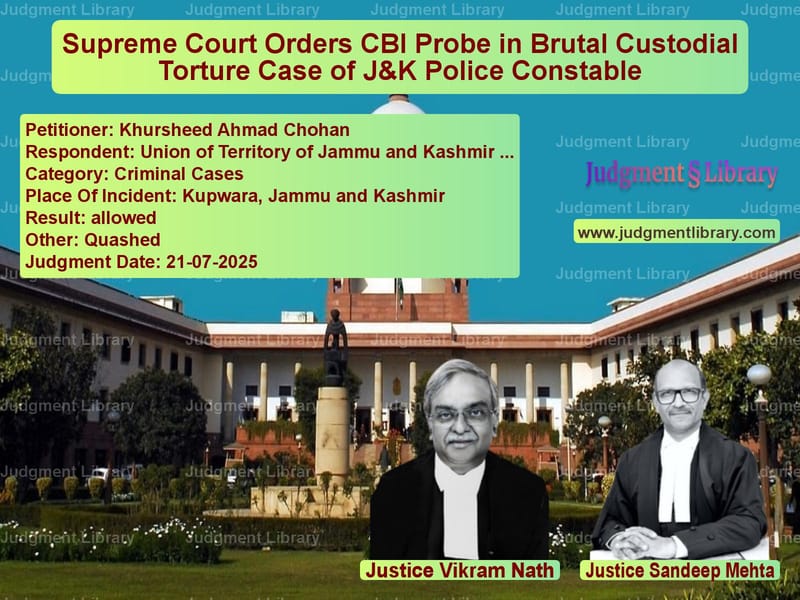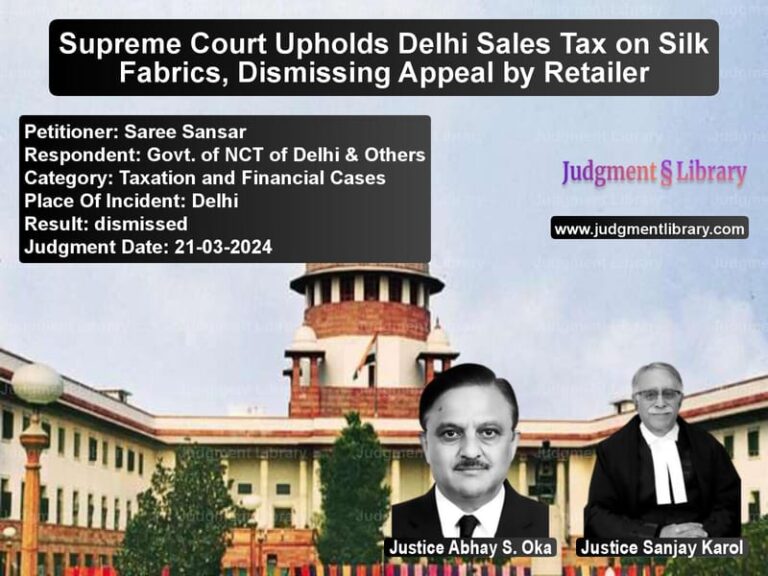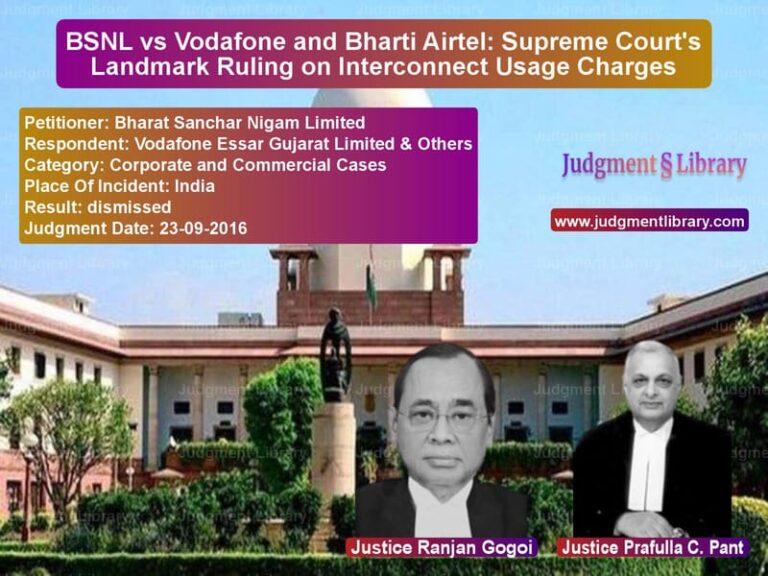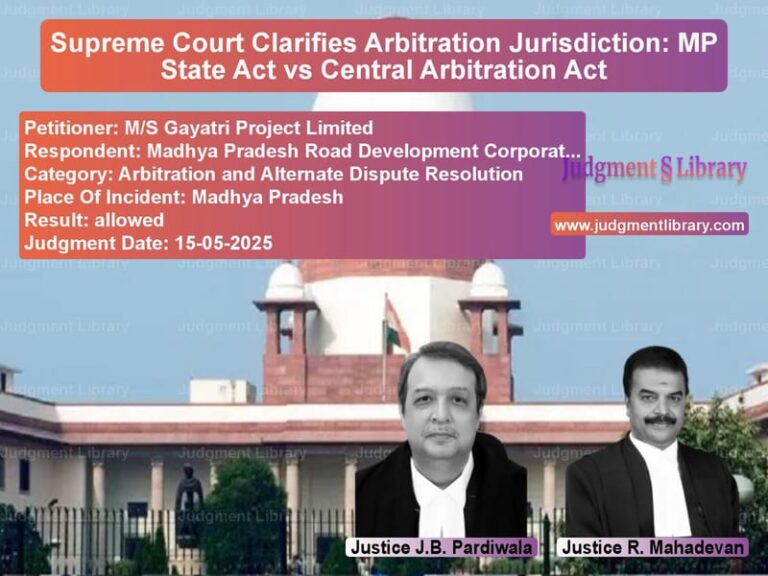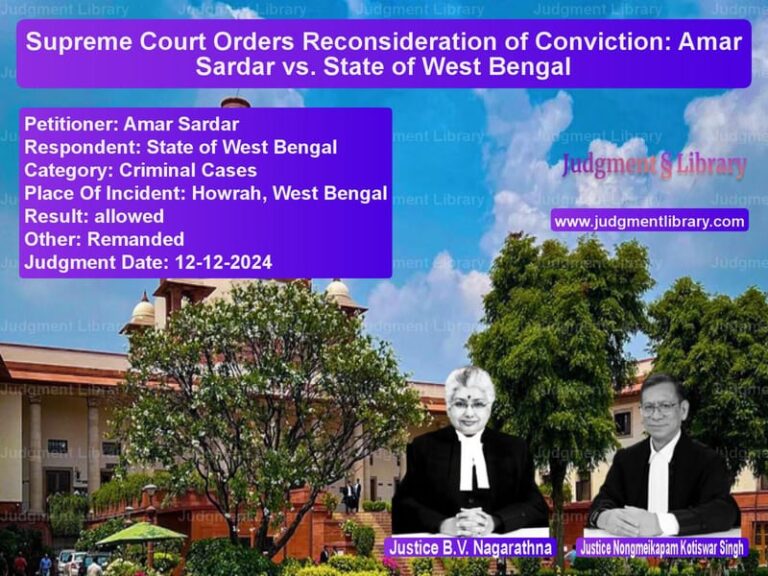Supreme Court Orders CBI Probe in Brutal Custodial Torture Case of J&K Police Constable
The Supreme Court of India has delivered a powerful judgment that exposes shocking police brutality and systematic cover-up in a case involving the custodial torture of a Jammu and Kashmir police constable. The case centers around Khursheed Ahmad Chohan, who suffered unimaginable horrors while in the custody of his own police department, including complete genital mutilation and systematic torture that left him permanently disabled.
The disturbing sequence began on February 17, 2023, when Chohan received official orders to report to the Senior Superintendent of Police in Kupwara for an enquiry related to narcotics. What followed was six days of alleged illegal detention and brutal torture that would leave him fighting for his life in a hospital.
According to the victim’s account, immediately upon arriving at the police office on February 20, 2023, he was detained and subjected to continuous custodial torture. The medical evidence presented to the Court revealed horrifying injuries that included amputation of his genital organs and testicles, pepper sprinkled on his private parts, electric shocks causing fractures, and multiple other injuries consistent with systematic torture.
The victim was eventually shifted to the District Hospital, Kupwara in a comatose condition, then transferred to SKIMS Hospital in Srinagar where he underwent emergency surgery. Shockingly, his dismembered testicles were brought to the hospital in a polythene bag by a police sub-inspector.
In a dramatic twist that the Supreme Court would later call a clear cover-up attempt, on the same day Chohan was admitted to hospital in critical condition, the police registered an FIR against him under Section 309 of IPC, alleging he had attempted suicide by cutting his veins with a blade.
Chohan’s wife, Rubina Aktar, immediately began her quest for justice, filing complaints with multiple police authorities and sending legal notices. When these efforts failed, the family approached the High Court seeking registration of an FIR against the guilty officials, transfer of investigation to CBI, and quashing of the false FIR against Chohan.
The High Court’s dismissal of their petitions and direction for a preliminary enquiry by the same police officials accused of the torture led the victim to approach the Supreme Court, setting the stage for a landmark legal battle.
Legal Battle in Supreme Court
The appellant’s senior counsel presented compelling arguments highlighting the gross injustice. He stated that the present matter concerns a deeply disturbing case of brutal custodial torture inflicted on a police constable, who was kept in illegal detention and later falsely implicated through a fabricated FIR in an attempt to shield the real perpetrators of the crime.
The counsel pointed to glaring inconsistencies in the official narrative, noting that the appellant was summoned on 17th February, 2023 and remained in custody from 20th to 26th February, 2023. However, FIR No. 17 of 2023, under which the appellant was purportedly summoned, was registered only on 23rd February, 2023, three days after his detention had commenced. This temporal gap renders the appellant’s detention from 20th to 22nd February, 2023 prima facie illegal ab-initio.
Regarding the medical evidence, he emphasized that the medical report from SKIMS, Soura-Srinagar categorically records grievous injuries that are incompatible with any form of self-inflicted harm to support the suicide theory, including a 10 cm x 5 cm laceration on the scrotum with both testicles surgically removed, bruises on the buttocks extending to the thighs, tenderness on the palms and soles indicative of blunt trauma, the presence of vegetative particles in the rectum, and multiple fractures.
On the legal front, the counsel argued that the High Court committed a grave error in law by failing to recognise the clear and egregious violation of the appellant’s fundamental rights under Articles 14 and 21 of the Constitution of India. The settled position of law, as laid down by the Constitution Bench in Lalita Kumari v. State of U.P., unequivocally mandates the registration of an FIR upon disclosure of a cognizable offence.
The respondents, represented by the Additional Advocate General, presented a starkly different version, claiming that the appellant’s allegations of custodial torture are nothing but a bundle of lies cooked up with an intent to cover up his attempted suicide and to divert attention from his own culpability. They argued that all injuries were self-inflicted during attempted suicide and that the appellant had complete access to all areas within the Joint Interrogation Centre.
Court’s Powerful Reasoning
The Supreme Court, in its judgment, expressed deep concern about the case, noting that it is undisputed that between 20th February and 26th February, 2023, the appellant sustained numerous injuries including castration of his genital regions. It is also undisputed that the dismembered genitalia were brought to the hospital in a separate plastic bag by a Sub-Inspector, a fact that shocks our conscience.
On the issue of mandatory FIR registration, the Court firmly stated that the question of mandatory registration of FIR has been conclusively settled by the Constitution Bench of this Court in Lalita Kumari, which laid down unambiguous principles that brook no exception or deviation. The Constitution Bench categorically held that registration of an FIR is mandatory under Section 154 of CrPC when information disclosing the commission of a cognizable offence is received by the police, and no preliminary inquiry is required or permissible in such cases.
The Court strongly criticized the High Court’s approach, stating that the High Court committed a grave error in law by failing to exercise the writ jurisdiction and in refusing to apply the mandatory principles laid down by the Constitution Bench in Lalita Kumari. Instead of ordering immediate registration of FIR, the High Court directed the very same Senior Superintendent of Police, Kupwara who had issued the Signal dated 17th February, 2023 summoning the appellant and under whose jurisdiction the alleged torture occurred, to conduct an inquiry into his own subordinates’ actions. This direction constitutes a flagrant violation of the fundamental principles of natural justice.
Regarding the transfer of investigation to CBI, the Court observed that the unprecedented gravity of this case involving brutal and inhuman custodial torture, characterised by the complete mutilation of the appellant’s genitalia, represents one of the most barbaric instances of police atrocity which the State is trying to defend and cover up with all pervasive power. The medical evidence conclusively establishes that such injuries are impossible to be self-inflicted.
The Court systematically dismantled the suicide theory, noting that the respondent’s suicide theory is demolished when assessed in light of the medical evidence, which decisively rules out the theory of the harm being self-inflicted. The complete surgical removal of both testicles, the extensive injuries to the appellant’s palms and soles, consistent with custodial torture techniques such as falanga, the presence of multiple vegetative particles in the rectum, and bruising on the buttocks extending to the thighs all points to a pattern of sustained and systematic torture.
Historic Directions and Compensation
The Supreme Court issued comprehensive directions to ensure justice is served. The Court directed the CBI to immediately register a case and complete investigation within 90 days, with arrest of guilty officials within one month. The police officials found responsible for the custodial torture shall be arrested forthwith and not later than a period of one month from today. The investigation shall be completed within 90 days of the date of registration of the RC.
In a significant move, the Court quashed FIR No. 32 of 2023 against Chohan, calling it prima facie fabricated and registered with mala fide intent to shield the guilty officers and prejudice the rights of the appellant.
Recognizing the profound suffering endured by the victim, the Court awarded interim compensation of Rs. 50 lakhs to Chohan. The Court noted that the injuries caused to the appellant during his illegal detention, particularly the complete mutilation of his genitalia, use of pepper/chilly powder and electric shocks on his genitalia, are grave reminders of the inhuman torture meted out to the appellant while detaining him illegally. The cumulative effect of all these facts is deeply shocking to the conscience of this Court.
The judgment stands as a powerful reaffirmation of constitutional principles and human rights in India, sending an unequivocal message that custodial torture will not be tolerated, and that the might of the state must never be used to violate the fundamental rights of citizens.
Petitioner Name: Khursheed Ahmad Chohan.Respondent Name: Union of Territory of Jammu and Kashmir & Ors. etc..Judgment By: Justice Vikram Nath, Justice Sandeep Mehta.Place Of Incident: Kupwara, Jammu and Kashmir.Judgment Date: 21-07-2025.Result: allowed.
Don’t miss out on the full details! Download the complete judgment in PDF format below and gain valuable insights instantly!
Download Judgment: khursheed-ahmad-choh-vs-union-of-territory-o-supreme-court-of-india-judgment-dated-21-07-2025.pdf
Directly Download Judgment: Directly download this Judgment
See all petitions in Custodial Deaths and Police Misconduct
See all petitions in Fundamental Rights
See all petitions in Public Interest Litigation
See all petitions in Compensation Disputes
See all petitions in Legal Malpractice
See all petitions in Judgment by Vikram Nath
See all petitions in Judgment by Sandeep Mehta
See all petitions in allowed
See all petitions in Quashed
See all petitions in supreme court of India judgments July 2025
See all petitions in 2025 judgments
See all posts in Criminal Cases Category
See all allowed petitions in Criminal Cases Category
See all Dismissed petitions in Criminal Cases Category
See all partially allowed petitions in Criminal Cases Category

